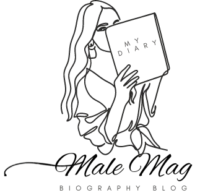Adelaide Hall, born on October 20, 1901, in Brooklyn, New York, was an American-born jazz singer, dancer, and actress who left an indelible mark on the world of music and entertainment. With a career that spanned over seven decades, Hall became one of the most celebrated performers of the 20th century, pioneering new vocal styles and elevating jazz music to new heights. She passed away in London on November 7, 1993, but her legacy continues to influence generations of musicians.
Early Life and Influences
Adelaide Hall grew up in a modest, religious family in Harlem, New York. Her father, Arthur Hall, was a part-time music teacher and pianist, and her mother, Elizabeth, worked as a domestic servant. Raised in a culturally rich environment, Adelaide and her sister Evelyn sang in the church choir, which nurtured their passion for music. Hall’s early inspiration came from Maud Mills, an established entertainer, and her sister Florence Mills, who became key figures in the Harlem Renaissance.
Tragedy struck when Evelyn passed away in 1920 from pneumonia. However, this loss motivated Hall to pursue a career in entertainment, and by 1921, she landed a role in the Broadway musical Shuffle Along. This groundbreaking production, featuring an all-Black cast, helped propel African American performers into the spotlight, and Hall was among those to benefit.
Rise to Fame in the 1920s
Hall’s career took off rapidly after her role in Shuffle Along. By 1925, she joined the European tour of Chocolate Kiddies, a musical revue that showcased African American jazz and dance. The tour was a success, allowing Hall to perform in major cities like Berlin, Hamburg, and Paris. Her performances in Europe solidified her reputation as a versatile entertainer.
One of her most significant career breakthroughs came in 1928 when she replaced Florence Mills in Lew Leslie’s Blackbirds of 1928. Hall’s interpretation of songs like “I Can’t Give You Anything but Love” and “Diga Diga Do” became instant hits. Her vocal improvisations and jazz rhythms, especially her pioneering scat singing, set her apart from other performers.
International Stardom and Collaborations
The 1930s saw Hall’s global fame grow even further. She collaborated with the legendary Bill “Bojangles” Robinson, performing in various Broadway musicals such as Brown Buddies (1930). These performances helped her gain a foothold in the world of Broadway, marking the beginning of an illustrious career on both sides of the Atlantic.
Perhaps one of the most iconic moments in Hall’s career was her collaboration with Duke Ellington. In 1927, she recorded wordless vocals for “Creole Love Call,” a track that became an enduring classic in jazz history. Her unique vocal style helped popularize scat singing, which remains a cornerstone of jazz music today.
Moving to Europe and Career Evolution
In the 1930s, Adelaide Hall relocated to Europe, primarily due to the harsh realities of racism in the United States and the economic downturn caused by the Great Depression. In Paris and London, she found greater acceptance and opportunities for her talents. By 1939, she had made London her permanent home, where she continued to perform on radio shows, in theater productions, and in clubs.
During World War II, Hall performed for British and American troops, further solidifying her status as an international icon. She later starred in the London production of Kiss Me, Kate and performed alongside stars like Lena Horne on Broadway.
Later Years and Legacy
Even in her later years, Hall remained active in the entertainment industry. In the 1950s, she made a brief return to Broadway, and in 1984, she had a resurgence in popularity after her signature song, “Creole Love Call,” was featured in Francis Ford Coppola’s film The Cotton Club. Despite facing the challenges of age and the death of her husband, Bertram Hicks, in 1963, Hall continued to perform into her 80s.
Adelaide Hall’s contributions to jazz and the arts earned her numerous accolades, including a place in the Guinness World Records as the world’s most enduring recording artist, with a career that spanned eight decades.
Conclusion
Adelaide Hall’s remarkable career, from her early days in Harlem to her international success, is a testament to her talent, resilience, and trailblazing spirit. Her innovations in jazz vocalization, particularly scat singing, have left an enduring impact on the genre. Hall’s legacy continues to inspire artists today, and her life remains a powerful story of overcoming barriers to achieve global stardom.
For more important news please visit my website: Male Mag

